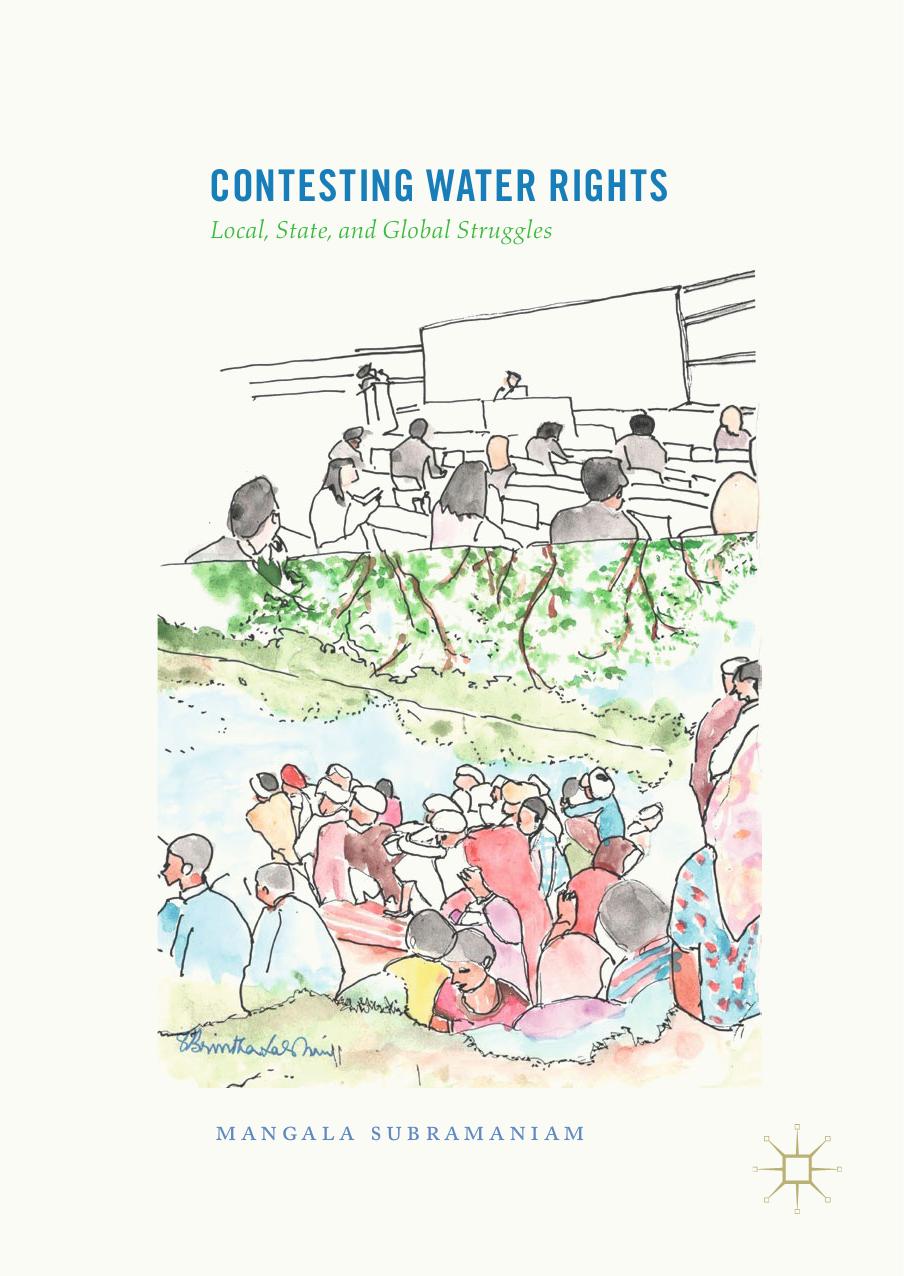Contesting Water Rights by Mangala Subramaniam

Author:Mangala Subramaniam
Language: eng
Format: epub, pdf
Publisher: Springer International Publishing, Cham
The Ambivalent State and Development : The Paradox of Jobs and Struggles
State institutions have been advocates of the neoliberal agenda by adopting privatization policies that have adversely affected environmental resources , including water. Local neoliberalism includes the contentious terrain of managing and using water, which involves the residents, NGOs , and state institutions. However, state institutions do not always work in concert with each other and may also alter their decisions over time and thereby appear ambivalent. This is also influenced by the lack of homogeneity among citizens (by gender , caste , and class ) demanding their rights to water resources . The issue of how state institutions have been ambivalent in the protests and campaigns for water rights is what I discuss next.
The initial 2001 agreement between the government and the CCVS marked a watershed in the contemporary history of the Adivasi struggles (Bijoy 2008) because it was intended to provide jobs for the local poor. Touted as a development initiative by the government , the firm employed about 130 permanent workers and 250 contract laborers. This was particularly important because the average daily wage was low in this region—about 80 Rupees for men and 40 Rupees for women —and dwindling to about 120 days of work per year. 8 However, as noted above, within a short period of the start of the Coca-Cola plant’s operations, the residents of Plachimada experienced problems that they had never encountered before—the receding of the water table and the drastic change in the quality of water. Moreover, water shortages had an adverse impact on agricultural operations and the deteriorating quality of water made it unfit for consumption.
The “socially responsible” Coca-Cola plant initially sold and later gave away for free the slurry and sludge waste as fertilizer to local farmers , who were unaware of the contents of the waste. As the residents began to recognize the problems, Coca-Cola surreptitiously dumped the sludge on the wayside and on lands at night. The residents questioned the form of “development ” the Coca-Cola plant was engaging in the promotion of such privatization efforts by the state has implications for environmental justice . But consideration of the state was not entirely straightforward in this case as the power of various institutions at the sub-national level was exercised at different points of the increasingly popular struggle. Moreover, as I discuss next, sub-national state institutions changed their position on the Coca-Cola plant’s operations as the struggle intensified.
During the initial two months, the struggle faced hostility and threats from local political parties , which included the Congress, the party in power in Kerala at that time, Janata Dal , the Communist Party of India (Marxist), and the BJP . As scholars have noted, there have been suspicions about the government being lenient on Coca-Cola when investigating accusations of pollution and water depletion (Pillai and Sreemahadevan 2008; Bijoy 2006; Berglund n.d.). For instance, early on in the campaign , when the CCVS was demanding the shutdown of the plant, Coca-Cola
Download
Contesting Water Rights by Mangala Subramaniam.pdf
This site does not store any files on its server. We only index and link to content provided by other sites. Please contact the content providers to delete copyright contents if any and email us, we'll remove relevant links or contents immediately.
The Secret History by Donna Tartt(16627)
The Social Justice Warrior Handbook by Lisa De Pasquale(11489)
Thirteen Reasons Why by Jay Asher(7788)
This Is How You Lose Her by Junot Diaz(5775)
Weapons of Math Destruction by Cathy O'Neil(5038)
Zero to One by Peter Thiel(4824)
The Myth of the Strong Leader by Archie Brown(4789)
Promise Me, Dad by Joe Biden(4449)
Beartown by Fredrik Backman(4420)
Stone's Rules by Roger Stone(4417)
How Democracies Die by Steven Levitsky & Daniel Ziblatt(4399)
The Fire Next Time by James Baldwin(4343)
100 Deadly Skills by Clint Emerson(4079)
A Higher Loyalty: Truth, Lies, and Leadership by James Comey(4033)
Rise and Kill First by Ronen Bergman(4012)
The David Icke Guide to the Global Conspiracy (and how to end it) by David Icke(3883)
The Farm by Tom Rob Smith(3872)
Secrecy World by Jake Bernstein(3783)
The Doomsday Machine by Daniel Ellsberg(3732)
